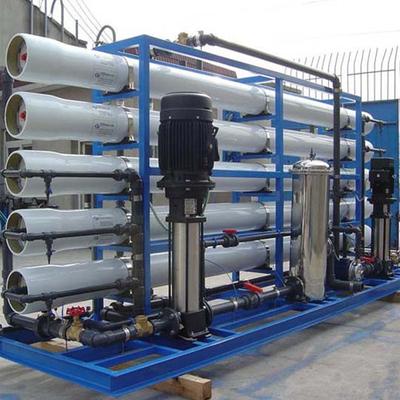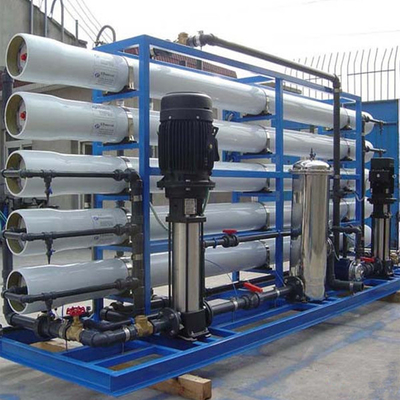-
Condensate Water Recovery Device
-
Reverse Osmosis Equipment
-
Fully Automatic Water Softener
-
Industrial Sand Filter
-
Water Supply Equipment
-
Chemical Dosing Device
-
Container Flipper
-
Container Loading and Unloading Machine
-
Truck Flipper
-
Electric Transfer Cart
-
Electronic Weighbridge
-
Mobile Loading Dock Ramp
-
Air Compressor Heat Recovery
-
Water Treatment Accessories
Tonglida Composite RO Reverse Osmosis Water Treatment Machine For Purified / Ultrafiltration Water

Contact me for free samples and coupons.
Whatsapp:0086 18588475571
Wechat: 0086 18588475571
Skype: sales10@aixton.com
If you have any concern, we provide 24-hour online help.
x| Features | High Efficiency, Energy-saving, Environmentally Friendly, Intelligent, And Versatile. | Product Material | Composite Material |
|---|---|---|---|
| Product Information | RO Reverse Osmosis Water Treatment Equipment For Purified Water, Ultrapure Water, And Ultrafiltration | Origin | Taian, Shandong |
| Application Fields | Electronics, Industrial, Pharmaceutical, Food, And Other Industries For The Preparation Of Purified Water And Ultrapure Water. | Brand | Tonglida |
| Highlight | composite reverse osmosis water treatment machine,composite advanced reverse osmosis water treatment system,ultrafiltration reverse osmosis water treatment machine |
||
Product Description:
Reverse osmosis (RO) is a water purification system that typically consists of two main parts: pre-treatment and RO main units. To ensure optimal performance, the RO membrane selected for each unit is tailored to the particular water quality and material requirements of the end user.
The RO membrane is a process membrane composed of high molecular materials that selectively allows water molecules to pass through while blocking solutes. Using a pump, high pressure is applied to the feedwater on one side of the semi-permeable membrane. When the pressure exceeds the osmotic pressure, water molecules are able to permeate through the membrane, resulting in purified water.
Inorganic salts (both dissolved and undissolved), heavy metal ions, organic substances, bacteria, colloids and other substances in the feedwater cannot pass through the semi-permeable membrane and are discharged with the concentrate. In other words, the RO system effectively removes impurities from the feedwater, resulting in high-quality purified water.
Features:
High efficiency, energy-saving, environmentally friendly, intelligent, and versatile.
Technical Parameters:
Filtration Precision
The pore size of a reverse osmosis membrane is 0.0001 micrometers, which is much smaller than the pore sizes of typical PP cotton filter cartridges (5 micrometers) and ultrafiltration membranes (0.01 micrometers). In fact, the pore size for bacteria and heavy metal ions is 0.001 micrometers. This means that reverse osmosis equipment is highly effective at removing impurities, bacteria, and other substances from water.
Water Production Capacity
The production capacity of reverse osmosis equipment can range from 1 to 100 tons, depending on specific requirements. Even for household use, the minimum production capacity is 7.8 liters per treatment. This equipment can be configured to produce 0.5 tons, 1 ton, 2 tons, 5 tons, 10 tons, 50 tons, 100 tons, and more, depending on the needs of the user.
Intelligent Control
Reverse osmosis equipment features fully automatic control valves that can be set based on flow rate or time. The equipment's filter media can be self-cleaned online, without the need for manual monitoring. It is incredibly convenient, fast, and labor-saving.
Long Service Life
Equipment lifespan is extended by incorporating quartz sand, activated carbon, scale inhibitors, fine filtration, and five-stage reverse osmosis filtration. These features ensure a much longer lifespan for the equipment.
Water Recovery Rate
Reverse osmosis equipment can achieve an impressive 75% recovery rate, meaning that a high percentage of water is being used effectively and efficiently.
Applications:
There are many industries that require purified water and ultrapure water for their operations. These industries include electronics, industrial, pharmaceutical, and food. The preparation of purified water and ultrapure water is crucial for ensuring quality in the products and processes involved in these industries.
The textile and chemical industries also require purified water for the purification and preparation of process water/chemical circulating water, and for the manufacturing of chemical products. Purified water is essential for maintaining product quality and ensuring efficient production processes.
The food and beverage industry, as well as those involved in the production of beverages, beer, liquor, and health products all require purified water for their operations. Drinking purified water is essential for maintaining good health, and for ensuring product quality and safety.
In many industrial production processes, it is necessary to concentrate and recover useful substances. Purified water is often used to aid in this process, thus increasing efficiency and reducing waste.
The power industry requires purified water for the pretreatment of high-pressure boiler feedwater and for the boiler feedwater used in thermal power boilers and low-pressure boiler power systems in plants and mines. High-quality water is essential for ensuring the safety and reliability of these systems.
Desalination and desalting of brackish water and seawater are also important applications for purified water. This is especially true for industries that operate in coastal areas or where water is scarce.
In pure water systems, the primary desalination equipment used for high-purity water production is purified water. This is essential for ensuring that the water is safe for use in various processes.
There are many enterprises and institutions, such as communities, real estate properties, schools, factories, hospitals, tea houses, hotels, beauty salons, and canteens, that require purified water for their daily operations. Drinking purified water is also important for maintaining good health.
Purified water is also essential for the production of bottled water, mineral water, and other packaged water products. These products require high-quality water to ensure that they are safe and free from contaminants.
The electronics industry requires purified water for various processes, such as rinsing water for integrated circuits, silicon wafers, display tubes, and other electronic components. High-quality water is essential for maintaining the quality and reliability of these components.
The pharmaceutical industry also requires purified water for various processes, including large-volume infusion, injections, tablets, and biochemical products. Purified water is also used for equipment cleaning and other purposes related to the production of pharmaceutical products.
Purified water is also important for desalination of seawater and brackish water for use on islands, ships, offshore drilling platforms, and in areas where water is scarce. Ultra-pure water is also used for other process uses, such as automotive, household appliance painting, coated glass, cosmetics, and fine chemicals.




